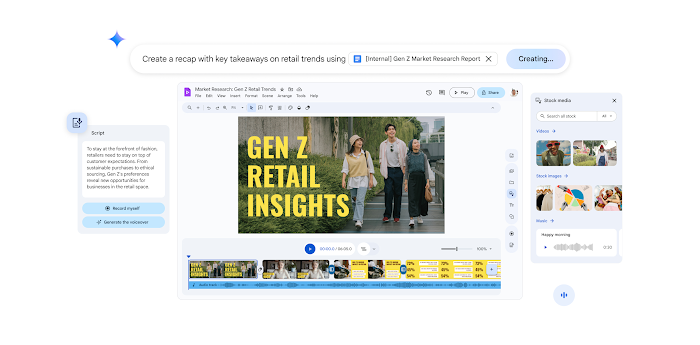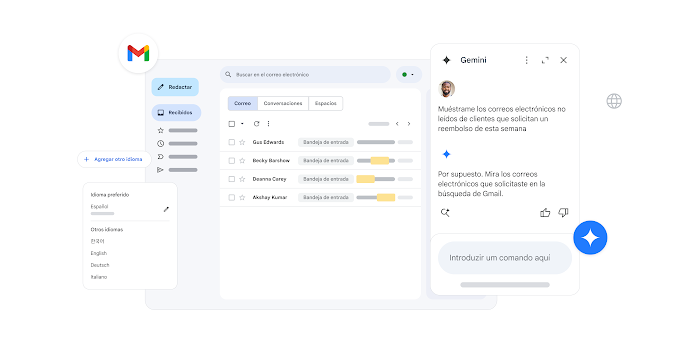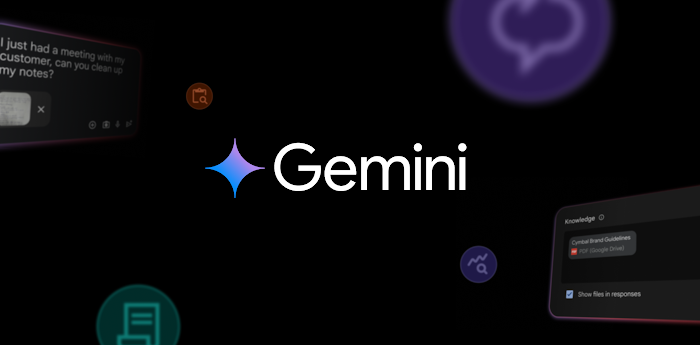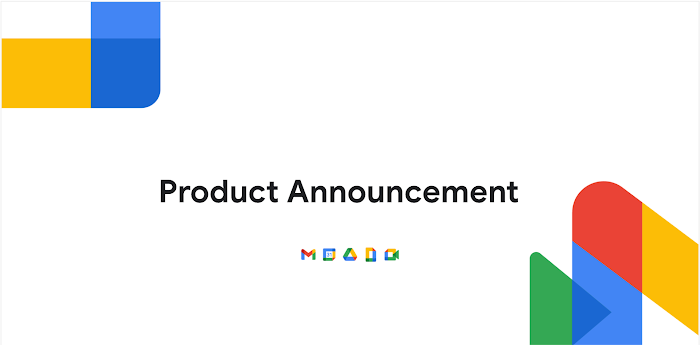Build workflows across Google Workspace to connect user experiences across apps
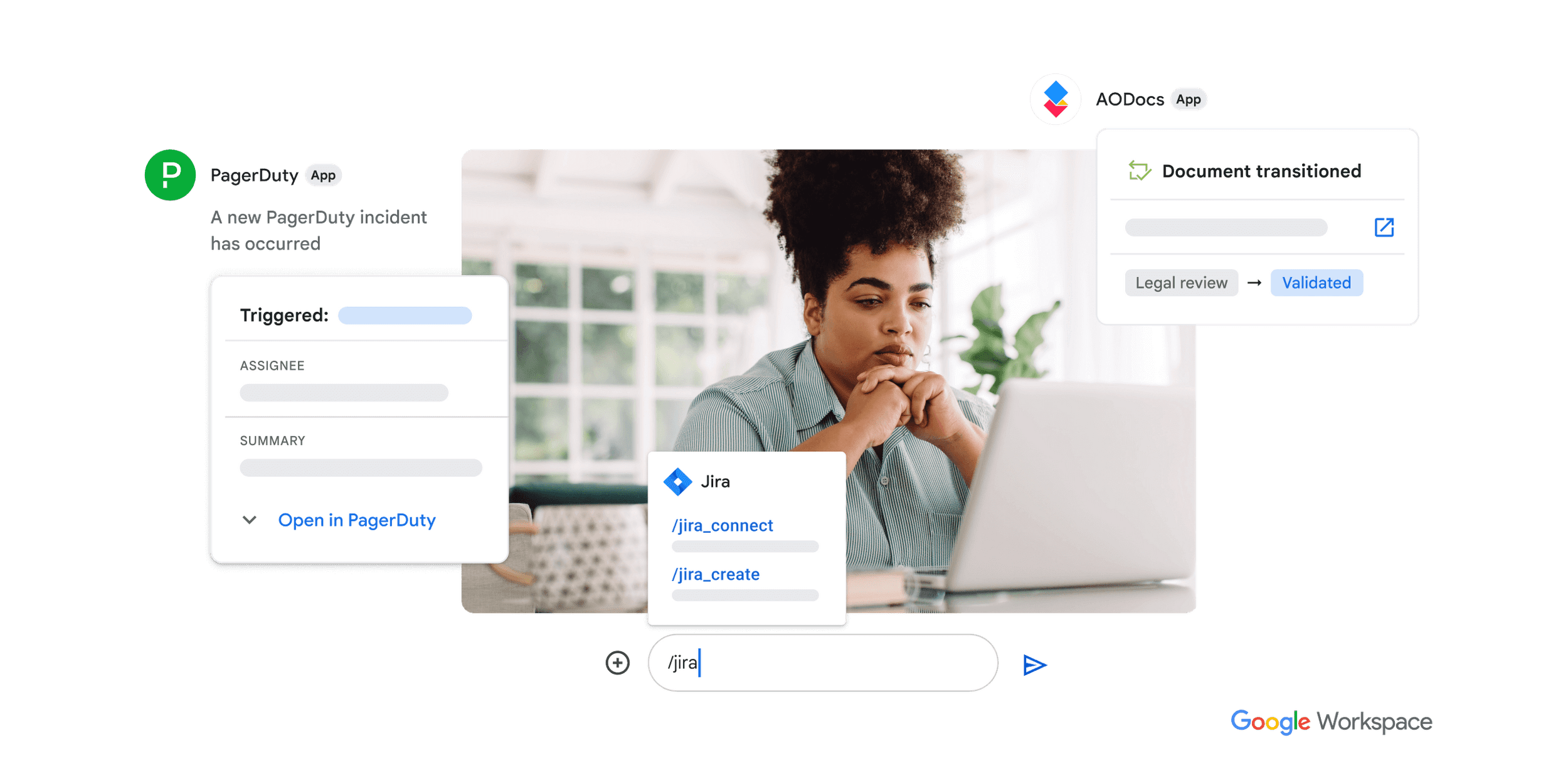
Johanna Voolich Wright
Vice President, Product, Google Workspace
Google Workspace Newsletter
Keep up with the evolving future of work and collaboration with insights, trends, and product news.
SIGN UPEditorial note: Duet AI for Google Workspace is now Gemini for Google Workspace. Learn more.
Today, developers and app creators of any skill level can leverage a rich set of APIs, SDKs, and no-code/low-code tools to create apps and integrate workflows directly into Google Workspace. Leading software companies like Atlassian, Asana, LumApps, and Miro are building integrations with Google Workspace apps to create more seamless experiences for our shared users. We’ve taken huge strides in making Google Workspace the most open and extensible platform, and we’re excited to unlock its potential further with new tools for developers and business users alike.
Three billion users and 9 million paying customers use Google Workspace to connect, create, and collaborate. Workflows using generative AI capabilities have the potential to enhance how users and customers get work done. Combining the latest Generative AI capabilities from Google Cloud with the extensibility of Google Workspace, developers can soon build generative AI-powered apps and workflows across Google Workspace.
Advancing no-code app creation
Duet AI for AppSheet makes it easier than ever for users to create intelligent business applications, connect their data, and build workflows into Google Workspace. With no coding required, users will be able to build apps by describing their needs in a chat guided by AI-powered prompts. This makes app creation accessible to more users, which can enable developer teams to focus their time on other high-impact work. Now businesses process owners can go from an idea to an app in minutes. Duet AI for AppSheet is now available to trusted testers.


In addition to generative AI support in app creation, we're happy to announce the ability to create Google Chat apps without code in AppSheet, now generally available. Now, users can create workflows and automations integrated with Chat.
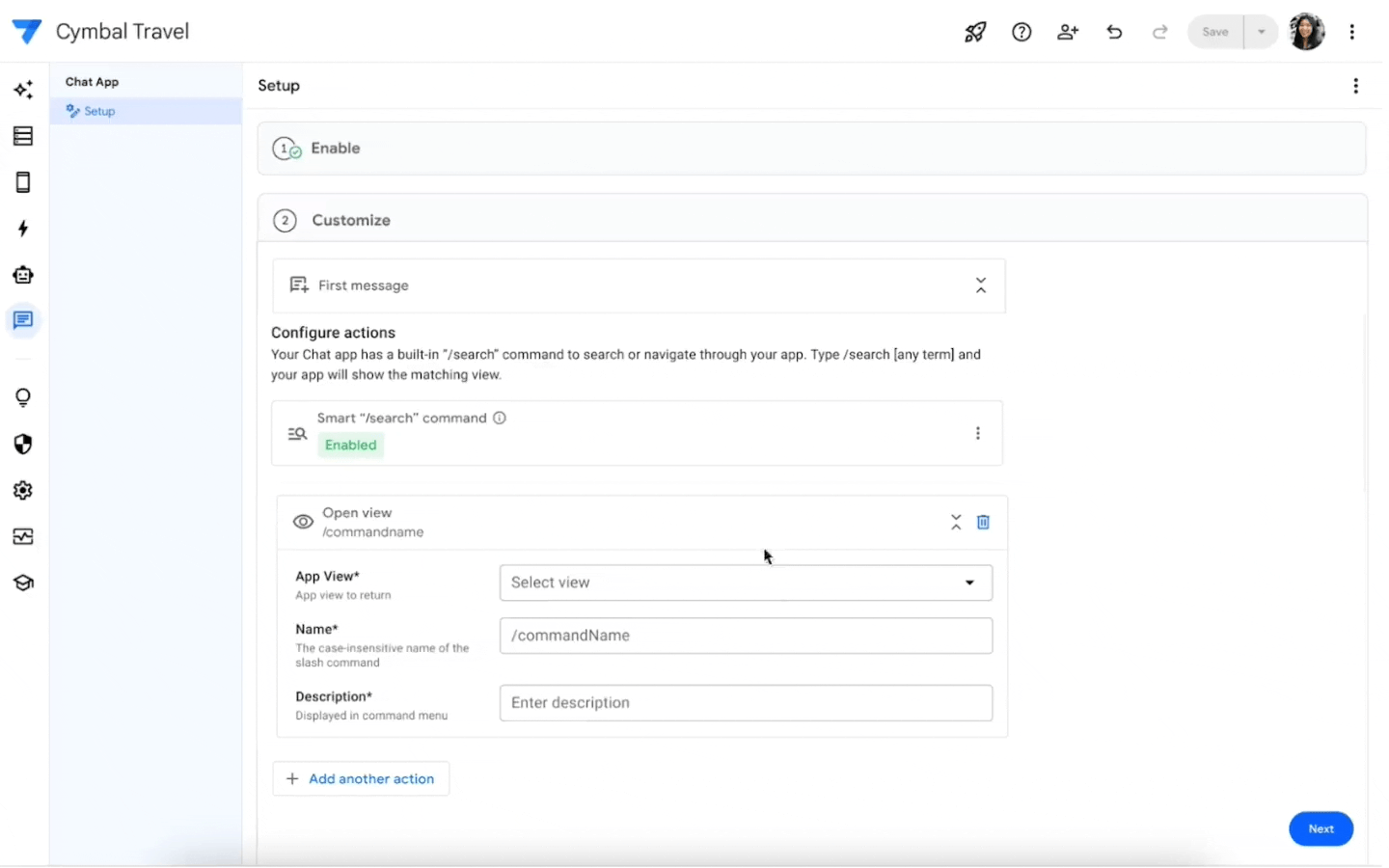

Apps and APIs for Google Chat
Chat has become a critical connectivity tool for hybrid organizations as well as a powerful tool for streamlining workflows.
The latest updates to the Google Chat API allow developers to build user facing apps that integrate workflows into Chat and provide contextual information right into the conversation. This API will be generally available in the coming weeks. Chat apps let users receive details and link previews directly from connected third-party systems. By keeping all conversations in a central space, users can get up to speed asynchronously and solve issues quickly.
There are already powerful Chat apps available from partners like Asana, PagerDuty and Zendesk. Zendesk for Google Chat empowers Customer Service, IT, and other internal and external support teams to collaborate on service requests across Zendesk and Google Chat — all without having to switch context from Google Chat.
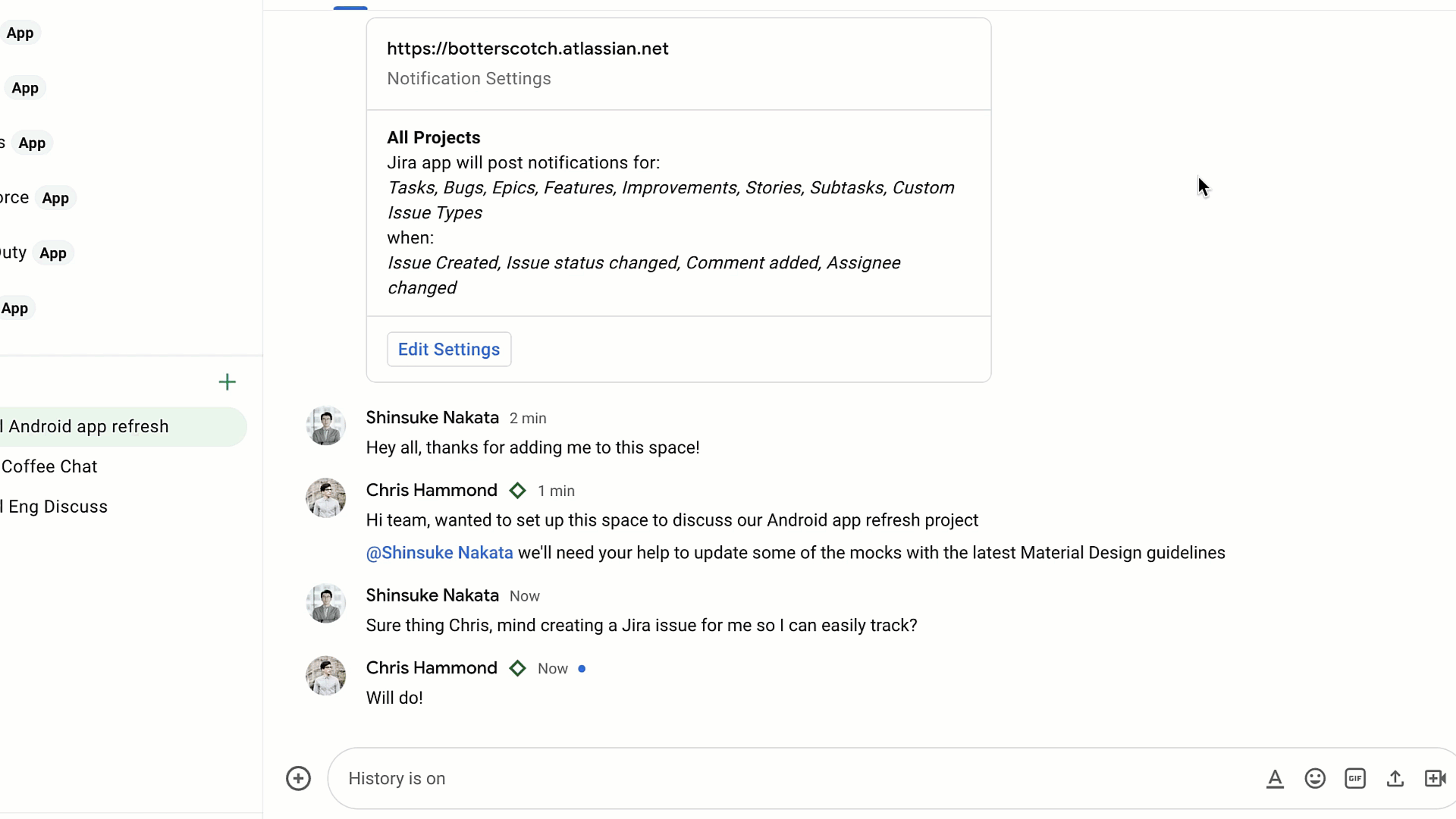

Apps in Google Meet or Google Meet in your apps
Google Meet has been helping users connect and collaborate through immersive video conferencing in the hybrid workplace. The Google Meet Web Add-ons SDK, which will be in public preview in the coming months, enables developers to bring their app experience right into Meet. Users can install, open, and collaborate in apps right inside a meeting, either as the meeting focal point, or in the sidebar — and all without ever leaving Meet.
Partners such as Atlassian, Figma, Lucid, Miro, and Polly.ai are already building Meet add-ons, and we’re excited to see what apps and workflows developers will build into Meet’s highly-interactive surfaces.
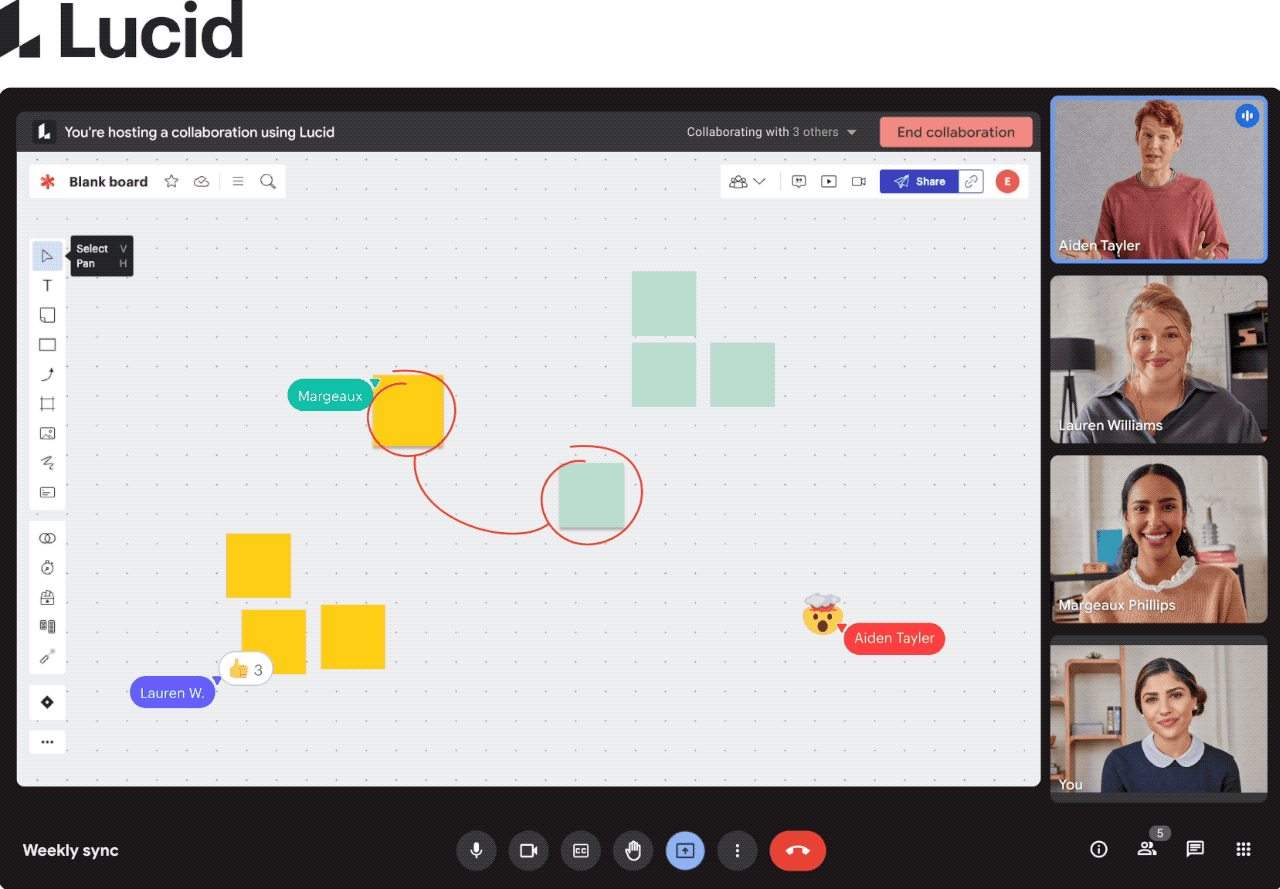

Also coming this summer to preview, the Google Meet REST API allows developers to easily add the power of Google Meet to their applications by pre-configuring and launching video calls right from their apps. Additionally, app developers will be able to pull data and artifacts such as attendance reporting, recordings, and transcripts in other apps. Via our new Events API, developers can receive notifications for events such as users leaving and joining the meeting, or when a meeting artifact is ready. This API lets developers surface meeting-relevant information to users in real time.
Finally, the Google Meet Live Sharing SDK lets developers build communal experiences for users across Android, iOS, and web. Through the SDK, developers can access our State Sync API, which lets them synchronize media content across participants’ devices in real-time and offer shared content controls for everyone in the meeting. The synced content and controls create a rich social experience for your users, letting them watch, listen, or play together. The Android SDK will be generally available in the coming months, and the iOS and Web support are now in preview.
Third-party smart chips in Google Docs
Last year, we announced third-party smart chips, which allow users to add, view, and engage with critical information from third party apps, right into the flow of their work without switching tabs or context. Third-party smart chips are now generally available. Users can tag and see critical information from partner applications using @-mentions, and easily insert interactive information and previews from these apps directly into a Google Doc.
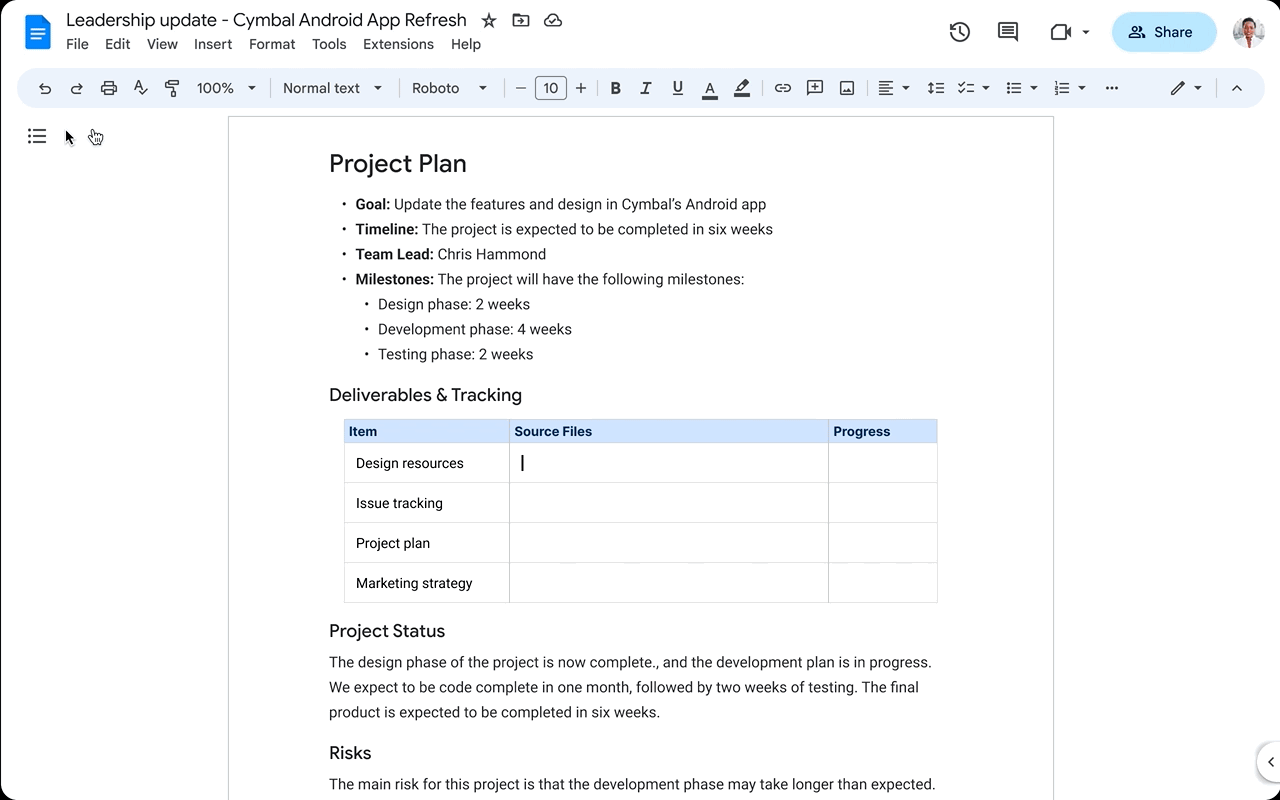

Today, partners are already building integrations using this new smart chips functionality. For example, Figma is integrated into Docs with smart chips, allowing readers to see a preview of a design project. Atlassian’s Confluence is also using smart chips to let users link to and provide preview information for project records, directly in Docs.
Find our latest AI-powered apps in the Google Workspace Marketplace
Our Google Workspace Marketplace helps users discover both publicly available apps, and custom internally-built apps from developers. We’ve launched a new category in Google Workspace Marketplace called Intelligent Apps, where users can discover AI-powered apps that our ecosystem developers build.
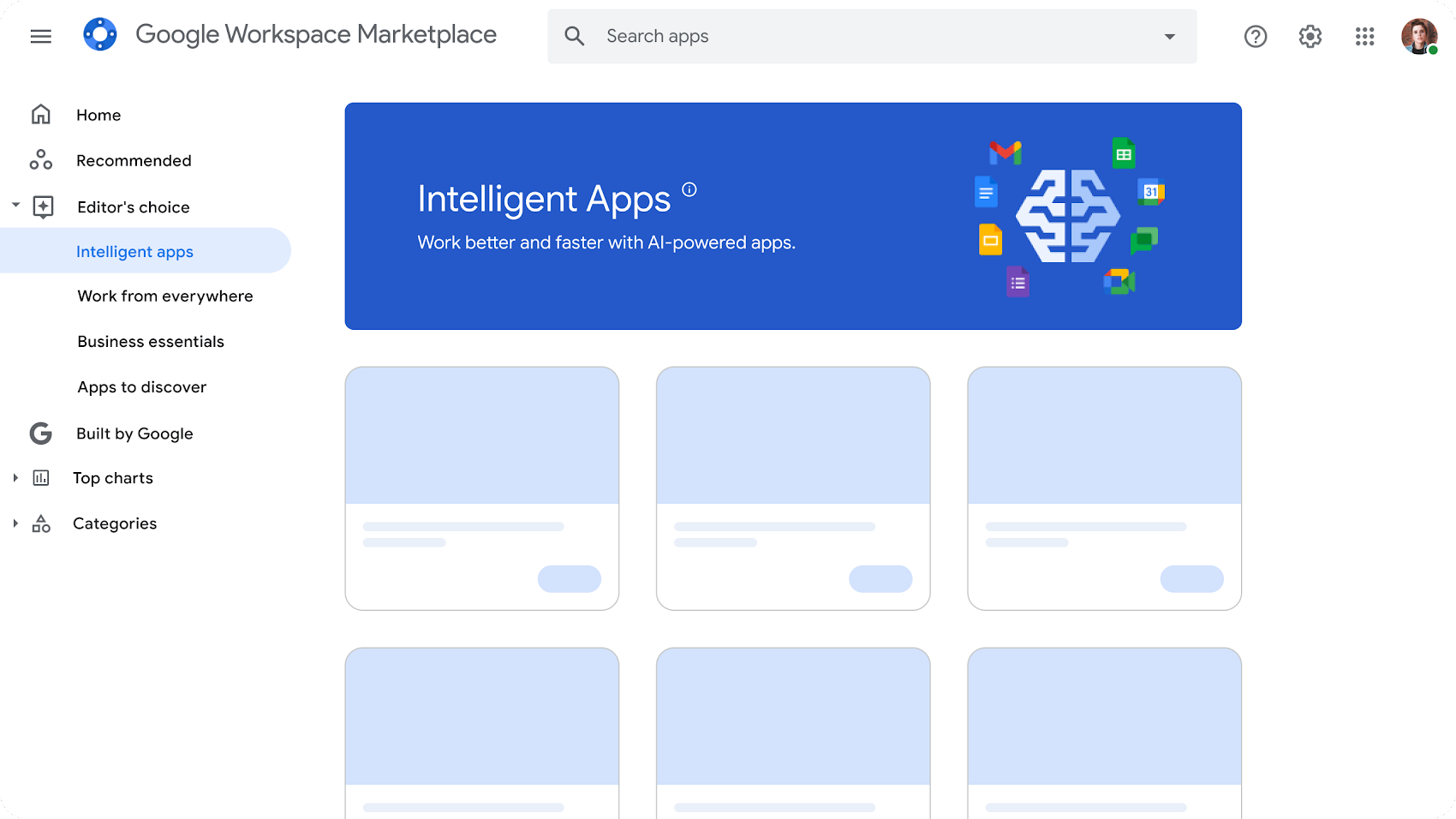

Start building today
We're excited to get these latest platform capabilities into your hands and can't wait to see what developers build for users and businesses on Google Workspace. To start building, I’d encourage you to join our developer preview program to get early access to features that are still in preview. Follow our YouTube channel to check out how-to videos and learn more about our platform.
